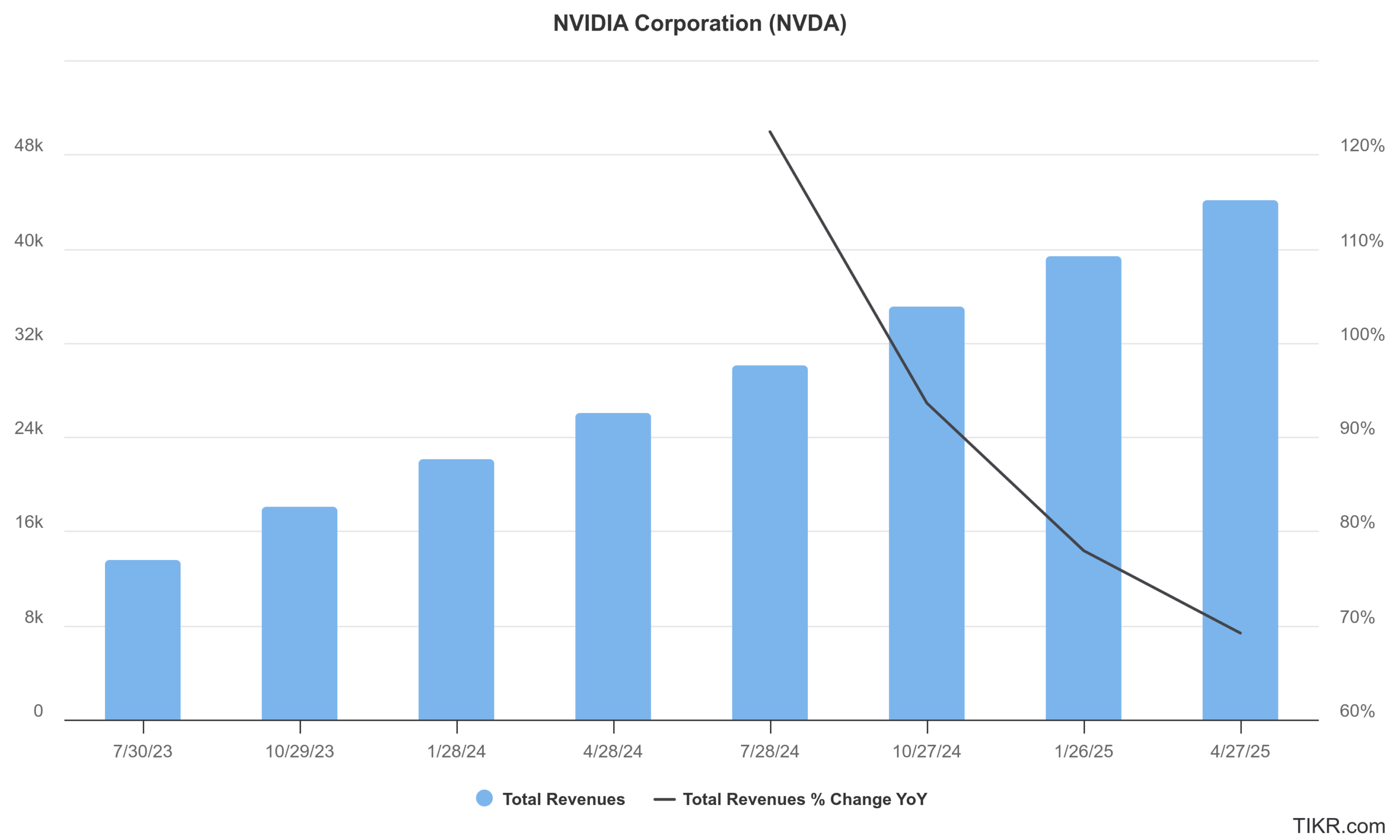Jensen Huang Says Huawei Will Gain from US Chip Export Restrictions
Please note that we are not authorised to provide any investment advice. The content on this page is for information purposes only.
Nvidia CEO Jensen Huang has said that Chinese tech giant Huawei will gain at the company’s expense due to US chip export restrictions. He has also made such observations in the past, as Nvidia continues to lose market share in the Chinese artificial intelligence (AI) chip market due to the US restrictions.
While Huang said that US chip “technology is a generation ahead of China’s, he warned, “If the United States doesn’t want to partake, participate in China, Huawei has got China covered, and Huawei has got everybody else covered.”
Huang on US Chip Export Restrictions
Speaking with CNBC, Huang added, “If we want the American technology stack to win around the world, then giving up 50% of the world’s AI researchers is not sensible … So long as all the AI developers are in China, you know, I think [the] China stack is going to win. And so we just have to be mindful of near-term actions on long-term, unintended consequences.”
To be sure, this is not the first time Huang has talked about the negative impact of export controls on its China business. During the fiscal Q1 2026 earnings call last month, he said, “The $50 billion China market is effectively closed to U.S. industry.”
Huang Believes US Restrictions Will Benefit Chinese Companies
Huang believes that the US restrictions would only spur innovation in China. “Shielding Chinese chip makers from U.S. competition only strengthens them abroad and weakens America’s position. Export restrictions have spurred China’s innovation and scale,” said Huang during the earnings call.
For context, in April, the Trump administration announced export controls on Nvidia’s H20 chips. Nvidia had designed these chips for China after the Biden administration had barred the company from exporting its top-of-the-line chips to the Communist country. After the Trump administration’s ban on exports of H20 chips, Nvidia wrote off its inventory by a mammoth $4.5 billion and expects the ban to shave off $8 billion from its revenues in the current quarter.
There is an apparent AI war between the US and China. While US blocked companies from exporting top-end AI chips to China, citing possible military use, many, including Huang, believe that the policy hasn’t succeeded.
Chinese Companies Have Launched Low-Cost AI Models
Speaking at the annual Computex event in Taipei last month, Huang said, “All in all, the export control was a failure”. Notably, despite the US ban, several Chinese companies came up with AI models that, while being comparable to those from Western rivals, were developed at a fraction of the cost. For instance, Chinese AI startup DeepSeek claimed to have developed its model at only $6 million, while US tech companies are spending a lot more on similar models.
Nvidia Is Losing Market Share in China
Nvidia has been losing its market share, and the company has warned that it is losing its competitive edge in the country where it once had a dominant market share. During the fiscal Q1 2026 earnings call, Nvidia’s CFO Colette Kress said, “We are still evaluating our limited options to supply Data Center compute products compliant with the U.S. government’s revised export control rules. Losing access to the China AI accelerator market, which we believe will grow to nearly $50 billion, would have a material adverse impact on our business going forward and benefit our foreign competitors in China and worldwide.”
Nvidia Is Reportedly Considering a New Chip for China
Meanwhile, Nvidia is reportedly considering developing a new chip that would meet US export restrictions. According to a Reuters report, the graphics processing unit will be based on Nvidia’s latest Blackwell-architecture AI processors. These are expected to be priced between $6,500 and $8,000, which is significantly below the $10,000-$12,000 that Nvidia was charging for the H20 chips.
An Nvidia spokesperson told Reuters that “Until we settle on a new product design and receive approval from the U.S. government, we are effectively foreclosed from China’s $50 billion data center market.”
Some Analysts Back Huang on Export Controls
Some analysts echo Huang’s view that the US export control rules are counterproductive and have only hastened China’s progress in AI.
“The effects of the controls are twofold. They have the impact of reducing the ability of U.S. companies to access the China market and, in turn, have accelerated the efforts of the domestic industry to pursue greater innovation,” said Paul Triolo, Partner and Senior VP for China at DGA Group.
He added, “The bottom line is, the controls have incentivized China to become self-sufficient across these supply chains in a way they never would have contemplated before.”
Triolo said that the export controls have only created new competitors for US companies. “You create competitors to your leading companies at the same time you’re cutting them off from a massive market in China,” said Triolo.
Huawei Says It’s Still Quite Behind US Rivals
Meanwhile, Huawei CEO Ren Zhengfei believes that the company still has a lot of work to do before it catches up with US rivals on AI chips. Speaking with China’s People’s Daily Newspaper, Ren admitted that Huawei’s single chip trails US chips by a generation. “The United States has exaggerated Huawei’s achievements. Huawei is not that great. We have to work hard to reach their evaluation,” said Ren.
That said, Huang might not be wrong in touting the threat from Huawei as it survived US sanctions and had its “chip breakthrough.” The company is now giving a tough fight to Apple with its competitive handsets and has gained market share at the iPhone maker’s cost.
While the company’s AI chips might still not be of the same potency as Nvidia, it’s a threat that Huang has cautioned about on more than one occasion.






